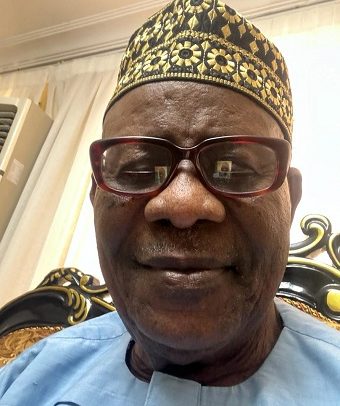Alhaji Sidiku Buari
Former President of the Musicians Union of Ghana (MUSIGA), Alhaji Sidiku Buari, has denied claims by Gyedu Blay Ambolley that he was a contributing factor to the challenges being faced by the music industry today.
Ambolley is reported to have said in an interview on Takoradi-based Connect FM that the leadership of Obour, Sidiku Buari and Diana Hopeson collapsed the industry.
Ambolley said the trio’s lack of knowledge of the industry led to the failure of MUSIGA and his inability to become the president of the association.
Responding to Ambolley’s claims, Alhaji Sidiku Buari said during his administration as MUSIGA president and chairman of the Copyright Society of Ghana (COSGA), he worked tirelessly to improve the living conditions of Ghanaian musicians.
He said during his eight years as MUSIGA president, he suffered a lot because there were no funds in the kitty of the association and so he ran the administration with his own resources.
He added that he renovated the old passport office which was given to MUSIGA by the government, with his personal money.
Alhaji Sidiku Buari cautioned Ambolley to refrain from making defamatory statements that seek to undermine the credibility of some personalities in the music industry.
He described Ambolley’s claims as mere fabrications intended to throw dust into the eyes of stakeholders in the music industry.
In an interview with BEATWAVES, he explained that, between 1999 and 2008, while serving as head of the Copyright Society of Ghana and president of MUSIGA, he significantly improved the reputation of the Ghanaian music industry.
Sidiku Buari, who is also the former vice president of the International Federation of Musicians (FIM) and chairman of FIM’s Africa Committee, said the values of accountability, transparency, and good governance served as the cornerstones of his administration.
He indicated that it was his administration that forced the government to waive the levy on musical instruments so that musicians may own their own musical equipment. He also succeeded in advocating for the passing of the Copyright Law ACT 690.
He claimed that Ambolley, a former vice president of MUSIGA, left office with no good record for the union to even know his achievements.
BEATWAVES gathered that during Sidiku’s era, music stakeholders recognised him for providing opportunities for musicians as well as musician unions in Ghana and Africa to get maximum benefits from FIM with regard to capacity building, and he worked hard to open MUSIGA offices in ten regions in the country.
During his administration, he said he was able to establish open air and an outdoor theatre at the premises of the union’s headquarters in Accra, where musicians can perform live concerts to earn a living and promote Ghanaian music.
Among his other accomplishments as President of MUSIGA, he said, was the engagement of an attorney to represent members in their discussions with producers about the preservation of musicians’ creative rights.
“The protection of intellectual property took place under my administration. Twice a year I paid musicians their royalties. Through the MUSIGA welfare scheme, I assisted many aged musicians,” he stated.
As one of the creative minds behind Charter House’s Ghana Music Awards, Sidiku Buari worked hard to ensure that the awards scheme became attractive when the likes of Gyedu Blay Ambolley were trying to incite musicians against it.
With over 52 awards to his credit, Sidiku served with distinction until the end of his term in 2008.
He is one of the pioneers of movie production in Ghana, with his first production, ‘Ayalolo’ showed commercially in all cinema houses across the country.
He disclosed that based on his outstanding performance in movie production, some years ago Deutsche Welle of Germany sponsored him to travel to most of the African countries to share his experience in movie production with his colleagues.
He said before he became a musician and movie producer, he was a sportsman who won a silver medal for Ghana in the 400-metre race in All African Games in Dakar, Senegal in 1963.
According to him, in the same year, he won gold and silver medals in the 400 metres and 4×400 metres relay for Ghana in the West African Games in Ibadan, Nigeria. That was not all, “in 1965 I won a bronze medal for Ghana in the All African Games held in Congo-Brazzaville,” he added.
By George Clifford Owusu

